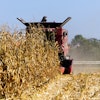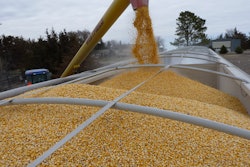CME Ends Force Majeure for Corn and Soybeans
Effective Tuesday, the CME Group stated that force majeure is no longer in effect at registered Chicago Board of Trade corn and soybean shipping stations on the Illinois River and Mississippi rivers.
On May 2, the exchange had declared force majeure at the shipping stations because flooding had impacted facilities which were unable to load corn and soybeans on barges.
The CME announced that it lifted force majeure "effective immediately" because most stations had regained the ability to load.
What It Means for the U.S. Farmer: At FBN we believe that lifting force majeure for parts of the Mississippi and Illinois rivers should cause local and also river basis to soften. We also believe that flooding could remain a concern as the latest weather model runs show material precipitation in areas that can impact key tributaries.
China Maintains Anti-Dumping Position on U.S. DDGS
China's Ministry of Commerce (MoC) said it will maintain anti-dumping and anti-subsidy tariffs on imports of U.S. distillers dry grains, DDGS, after completing a review that launched in April.
The MoC continued to maintain that importing U.S. DDGS presents “potential damage” to domestic Chinese producers.
The Chinese will maintain the current anti-dumping tariff structure of 24.2-53.7% and anti-subsidy tariffs of 11.2-12% on U.S. DDGS.
There is widespread speculation that the U.S/Chinese trade talks will include reducing the current tariff structure on U.S. DDGS.
What It Means for the U.S. Farmer: At FBN we believe that China’s decision to leave the anti-dumping tariff structure intact is not a surprise. Given the current impasse of the U.S./Chinese trade talks we believe that there is no pressing economic or political impetus for China to increase the volume of DDGS as feed inputs. We believe that this decision is more of a negative for the ethanol industry rather than the U.S. farmer as the corn market is focused on future U.S. corn supplies rather than ethanol producer margins. However, we believe that improved ethanol producer margins could assist some local corn basis particularly in locales where ethanol margins are weak and production runs have slowed.
The risk of trading futures, hedging, and speculating can be substantial. FBN BR LLC (NFA ID: 0508695)










